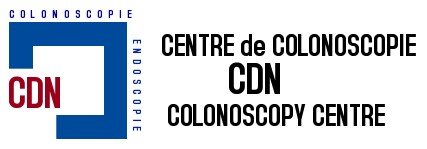Gastroscopy Instructions
please see Gastroscopy for more information.
Your reflexes and judgment may be impaired by the medications you receive. It is strongly recommended that you be accompanied because you will NOT BE ABLE TO DRIVE OR OPERATE MACHINERY AFTER THE PROCEDURE FOR 24 HOURS.
After the gastroscopy, if you have received medication, you will remain in the endoscopy area until the effects of the medications have sufficiently worn off. Your throat may be sore for a few hours, and you may feel bloated for a few minutes. When you leave the clinic, you will be able to resume your usual diet.
For the best possible examination, your stomach must be COMPLETELY EMPTY. It is important to follow these steps:
If your gastroscopy is in the MORNING: FAST FROM MIDNIGHT (NO LIQUIDS OR SOLIDS).
If your gastroscopy is in the AFTERNOON: YOU ARE ALLOWED TO HAVE CLEAR FLUIDS (coffee, tea, juice, soft drinks, Jell-O) FOR BREAKFAST, BEFORE 9:00 AM.
It is important to inform the doctor in advance if you have the following medical conditions:
If you are taking COUMADIN, PLAVIX , or other anticoagulants such as XARELTO, ELIQUIS, PRADAXA, or LIXIANA, it is usually necessary to stop these medications prior to the procedure. Please discuss in advance with your doctor if these medications can be stopped.
If you have diabetes, your diabetic medications will need to be discussed with the secretary at CDN Colonoscopy - Gastroscopy Centre.
If you require antibiotics prior to dental work due to heart disease
If you are allergic to any medications.
COMPLICATIONS: Gastroscopy is associated with a very low risk of complications when performed by specialized physicians. One possible complication is a minuscule perforation (a tear in the wall of your esophagus or stomach) that can occur in less than 0.01% of cases. If that were to occur, it can be managed simply by aspirating the fluids until the opening seals, or it may require surgery.
Bleeding may occur from the site of the biopsy or polyp removal; it is usually minor and stops on its own or can be controlled by cauterization (application of electrical current) through the gastroscope. It is extremely rare that we have to transfuse or perform surgery to stop the bleeding. Localized irritation of the vein or a small bruise may occur at the site of injection of medication; this will resolve after a few days or, more rarely, after a few weeks.
We rarely see reactions to the medication administered during the procedure. These reactions would resolve by themselves rapidly. Other extremely rare complications can occur in predisposed patients, including a heart attack or a stroke. As with any other medical intervention, cases of death have been reported, but this is extremely rare.
INFORMED CONSENT:
I have read and understand the content of this form. I agree to undergo the gastroscopy (with or without a biopsy).
X_________________________________________________ _________________________________________________
(Patient) (Witness)
__________________________________________________ __________________________________________________ _________________________________________
(Date) (Doctor's Signature)
